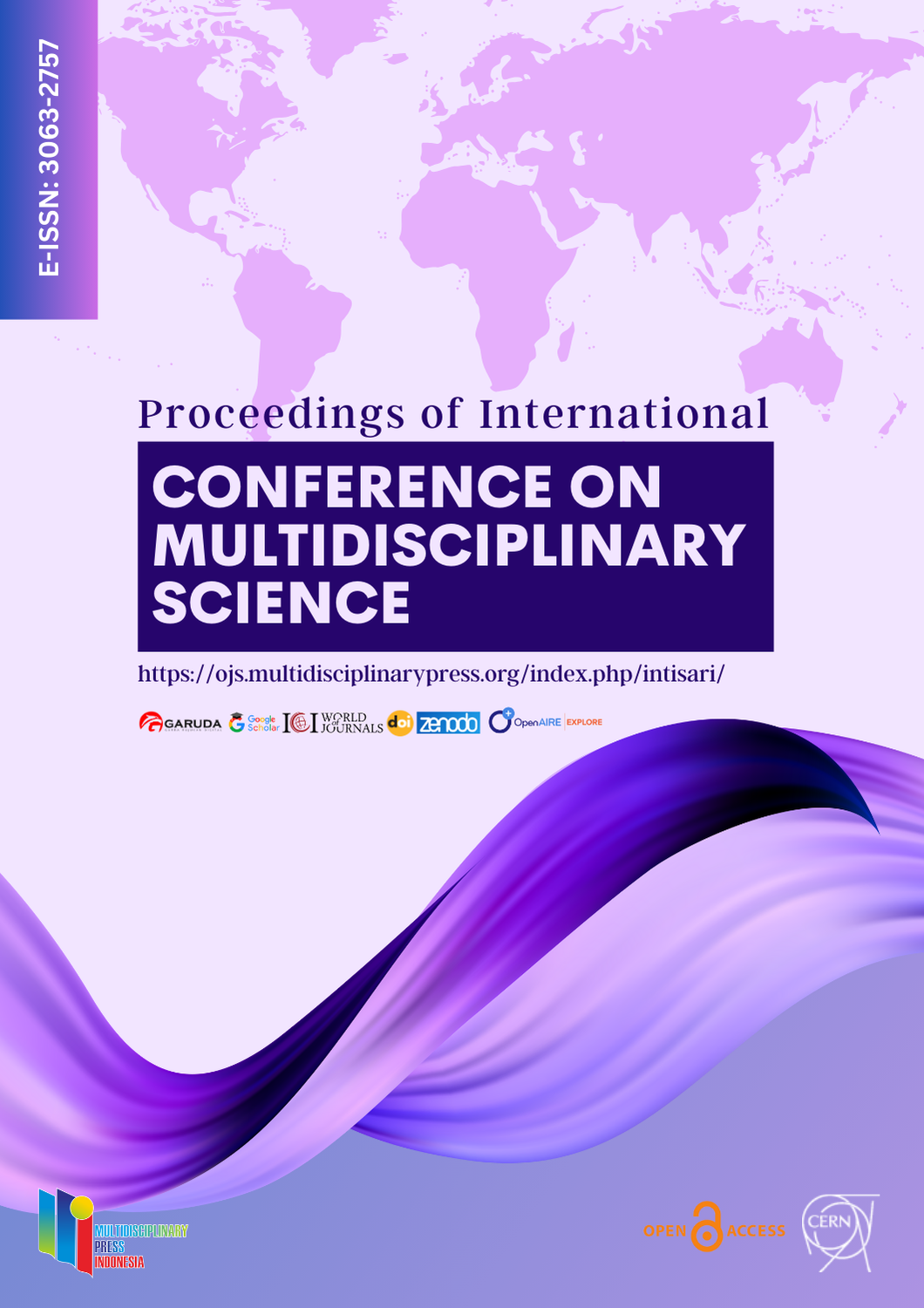Determination of ASN Performance
Keywords:
Work Motivation, Loyalty, Work Discipline, ASN PerformanceAbstract
Human resources (HR) are a very important factor that cannot be separated from an organization, whether institutional or company. HR is also the key that determines the company's development. In essence, HR is in the form of humans who are employed in an organization as movers, thinkers and planners to achieve the organization's goals. The location of the research was carried out at Rumkit Tk II Iskandar Muda, the population of this study was 226 and the sample after being broken down using the Slovin formula was 144. The results of this research are as follows: Work Discipline has been a positive and significant effect on ASN Performance with an original sample value of 0.527 and p value 0.000. Loyalty has a positive and significant effect on Work Discipline with an original sample value of 0.599 and ap value of 0.000. Loyalty has a positive and significant effect on performance with an original sample value of 0.200 and ap value of 0.021. Work Motivation has a positive and significant effect on Work Discipline with an original sample value of 0.324 and ap value of 0.000. Work Motivation has a positive and insignificant effect on performance with an original sample value of 0.169 and ap value of 0.056. Loyalty has a positive and significant indirect effect on performance through work discipline with an original sample value of 0.316 and ap value of 0.000. Work Motivation has a positive and significant indirect effect on performance through Work Discipline with an original sample value of 0.171 and ap value of 0.001.
Downloads
References
Adha Risky Nur, Nurul Qomariah, Achmad Hasan Hafidzi. (2019) Pengaruh Motivasi Kerja Lingkungan Kerja Budaya Kerja Terhadap Kinerja Karyawan Dinas Sosial Kabupaten Jember. Jurnal Penelitian Ipteks. Vol. 4 No. 1.
Andika, R. (2019). Pengaruh Motivasi Kerja dan Persaingan Kerja Terhadap Produktivitas Kerja Melalui Kepuasan Kerja sebagai Variabel Intervening Pada Pegawai Universitas Pembangunan Panca Budi Medan. Jumant, 11(1), 189-206.
Ghozali, I. Latan, H. (2014) Partial Least Square : Konsep, Teknik dan Aplikasi Smart PLS 2.0 M3. Semarang: Badan Penerbit Universitas Diponegoro.
Hasibuan, Malayu SP. (2014) Manajemen Sumber Daya Manusia, Cetakan keempatbelas, Jakarta ,Penerbit : Bumi Aksara.
Hendrayani, (2020), Pengaruh Tingkat Pendidikan dan Pengalaman Kerja Terhadap Kinerja Karyawan Pada PD. Pasar Makassar Raya Kota Makassar”, Jurnal Economix, Vol. 8, No. 1.
Hair, J. F. et. al. (2017) A Primer on Partial Least Squares Structural Equation Modeling (PLS-SEM). SAGE Publications, Los Angeles
Mangkunegara, A. A. Anwar Prabu. (2016) Manajemen Sumber Daya Manusia Perusahaan, PT. Remaja Rosdakarya, Bandung
Nugraha, C. A., & Sari, F. P. (2020). Pengaruh disiplin kerja terhadap kinerja karyawan (studi pada PT Infomedia Solusi Humanika Bandung divisi inbound call center). Jurnal Mitra Manajemen, 4(3), 352-362.
Pratiwi. (2014) Pengaruh Penilaian Prestasi Kerja dan Promosi terhadap Motivasi Kerja Karyawan pada PT. Jamsostek (Persero) KC Bekasi.
Robbins, Stephen P. and Mary Coulter. (2016) Manajemen, Jilid 1 Edisi 13, Alih Bahasa: Bob Sabran Dan Devri Bardani P, Erlangga, Jakarta.
Rivai Zainal, S. (2015) Manajemen Sumber Daya Manusia Untuk Perusahaan . Edisike-7. Depok: PT RAJAGRAFINDO.
Sekaran, Uma (2014) Metodologi Penelitian Untuk Bisnis (Research Methods for Business) Buku 1 Edisi 4. Jakarta: Salemba Empat.
Sunyoto. (2018). Manajemen Sumber Daya Manusia. Jakarta: PT Buku Seru.
Sutrisno, Edy. (2015) Manajemen Sumber Daya Manusia (Cetakan ke tujuh). Jakarta: Kencana Prenada Media Group.
Sugiyono. (2014). Metode Penelitian Pendekatan Kuantitatif, Kualitatif, dan R&D. Bandung: Alfabeta.
Downloads
Published
How to Cite
Issue
Section
Categories
License
Copyright (c) 2024 Andi Syahputra, Nizamuddin

This work is licensed under a Creative Commons Attribution 4.0 International License.





